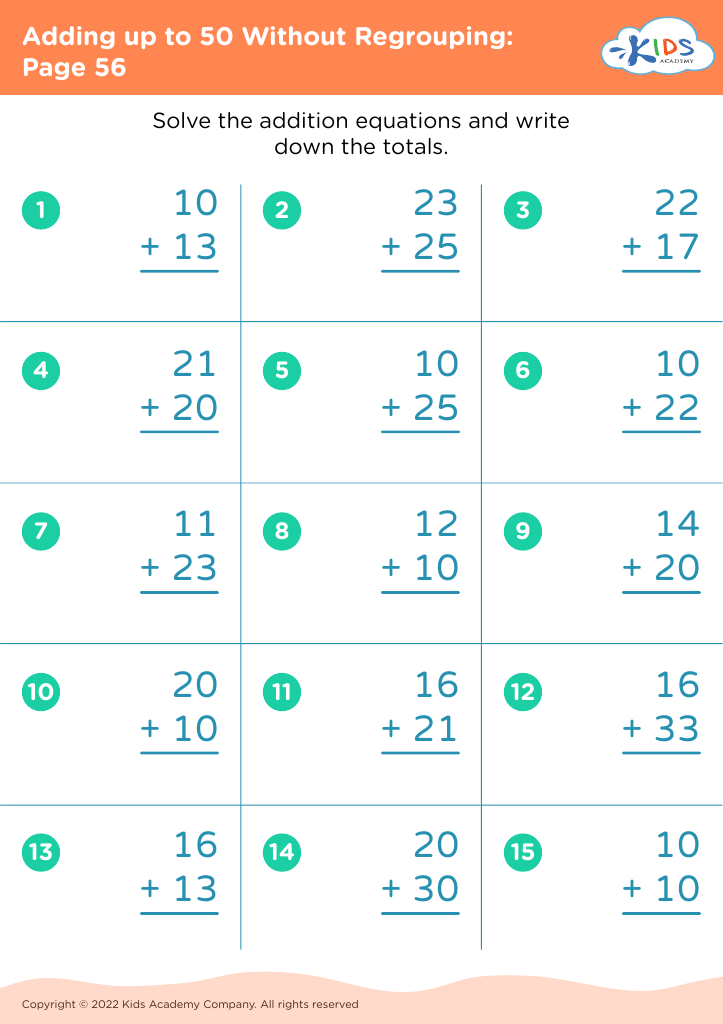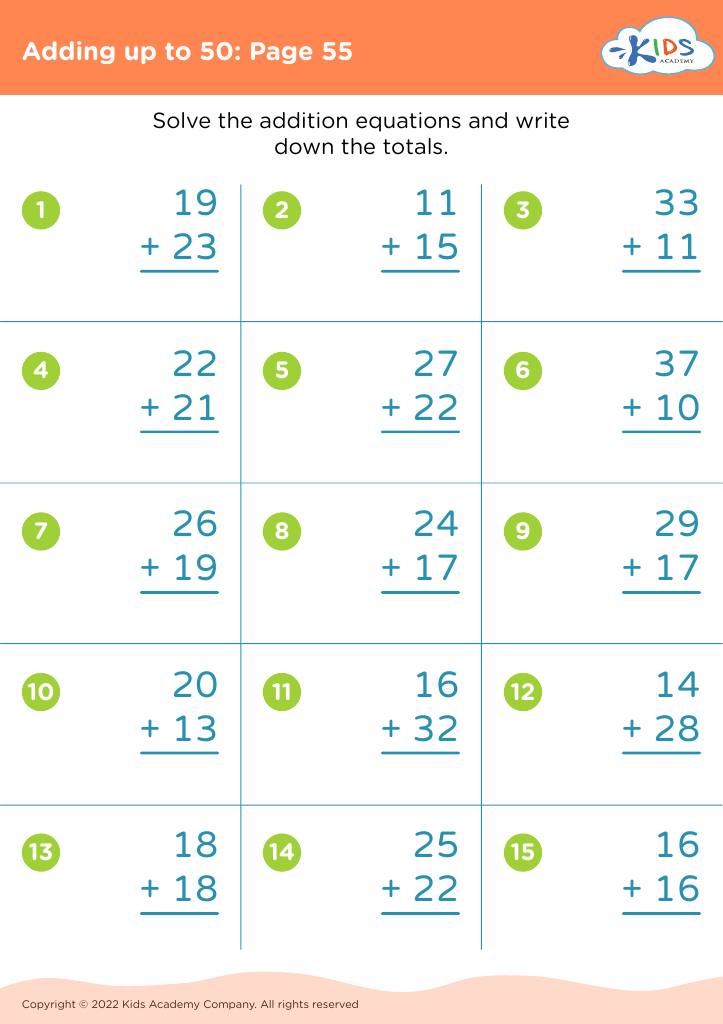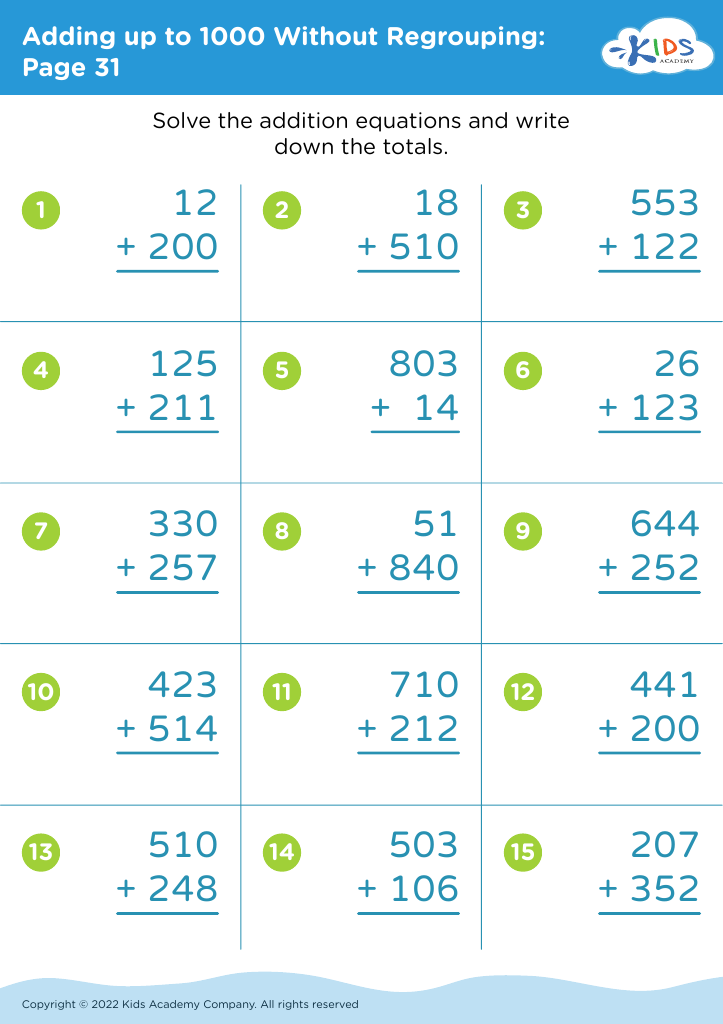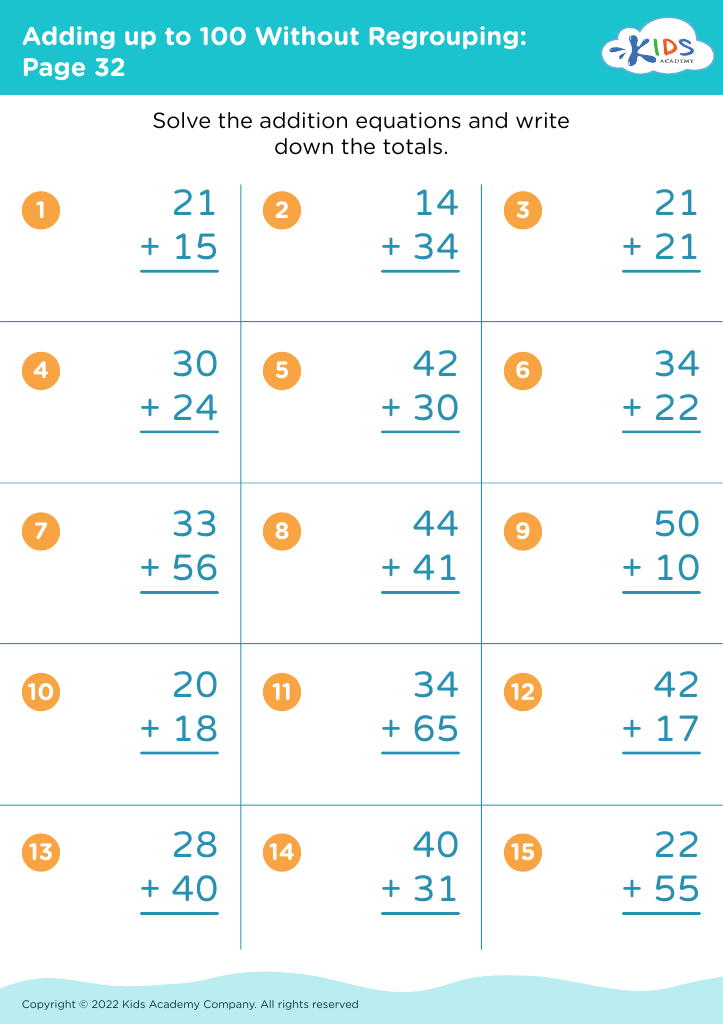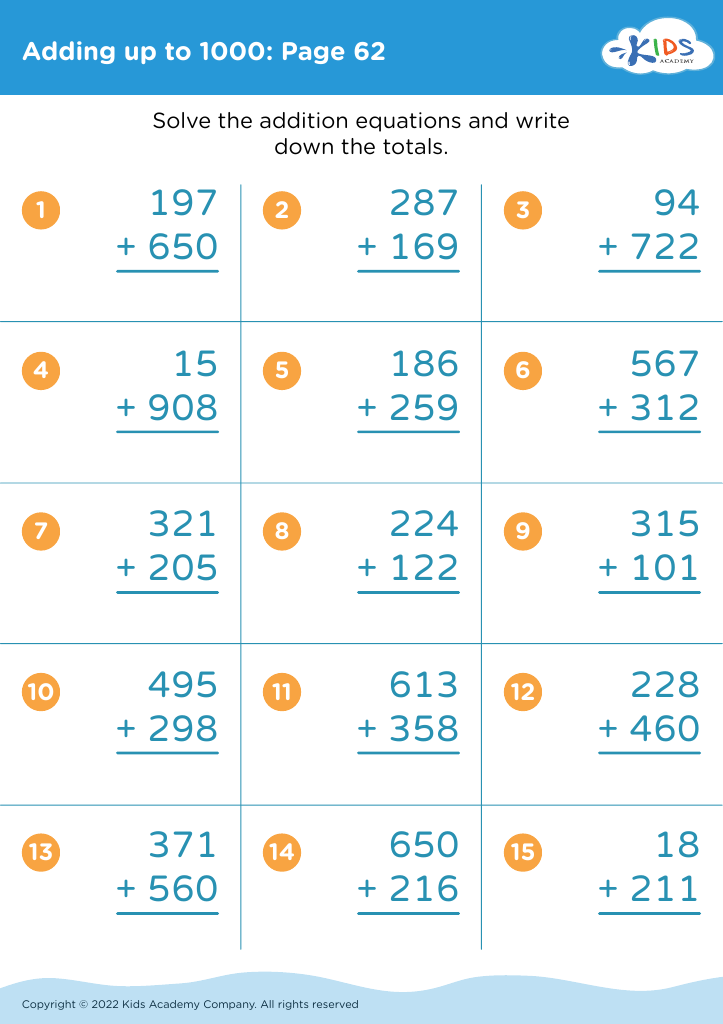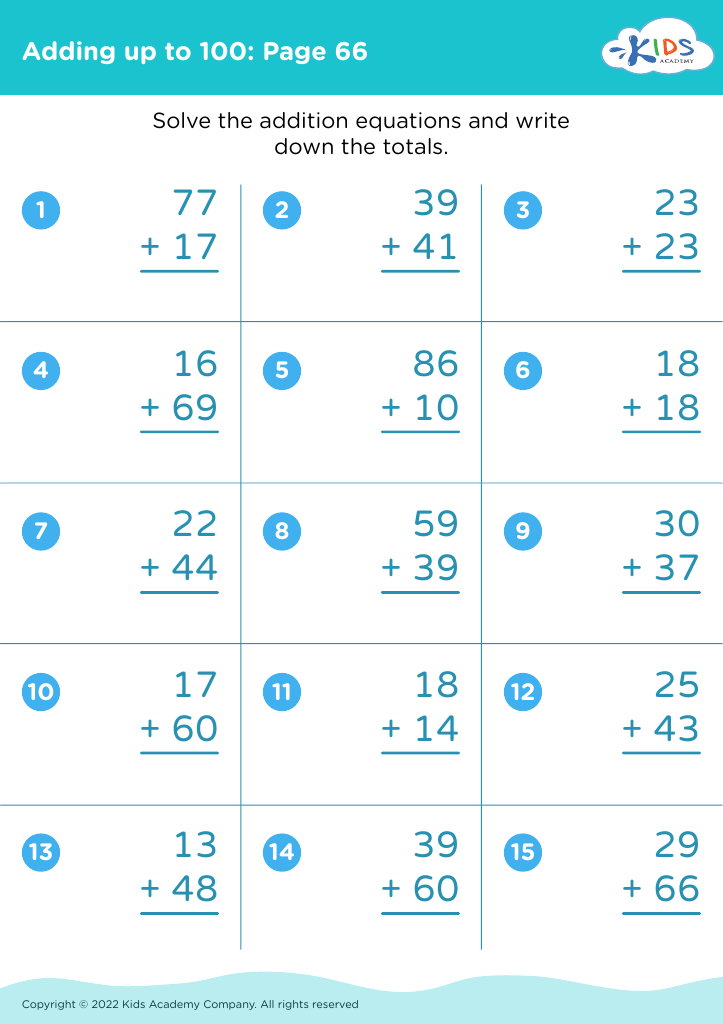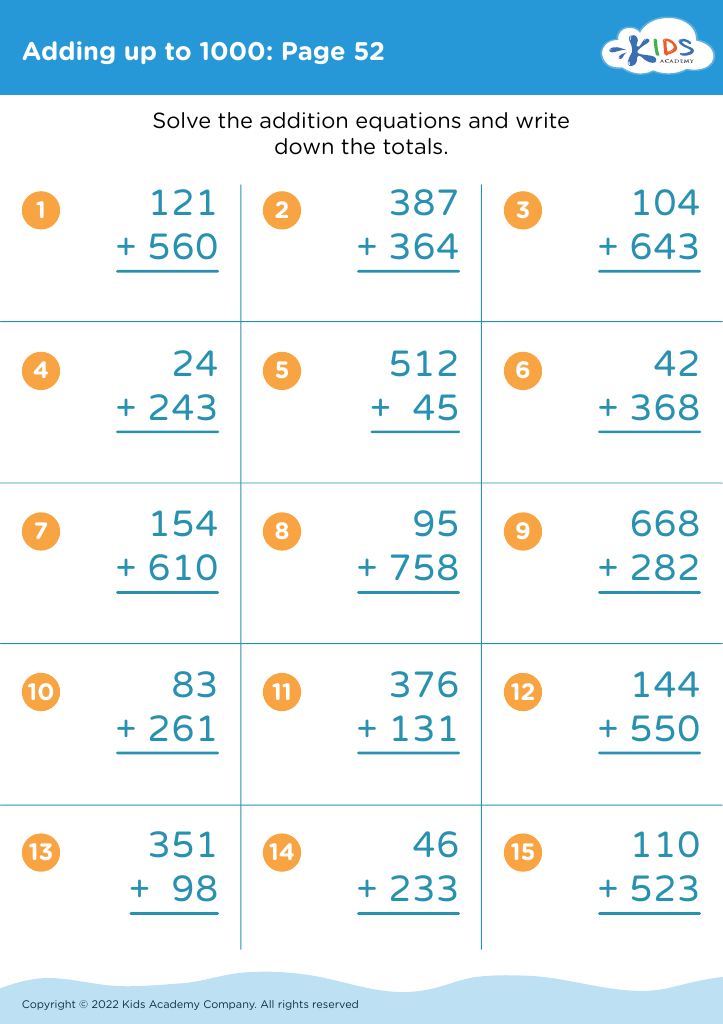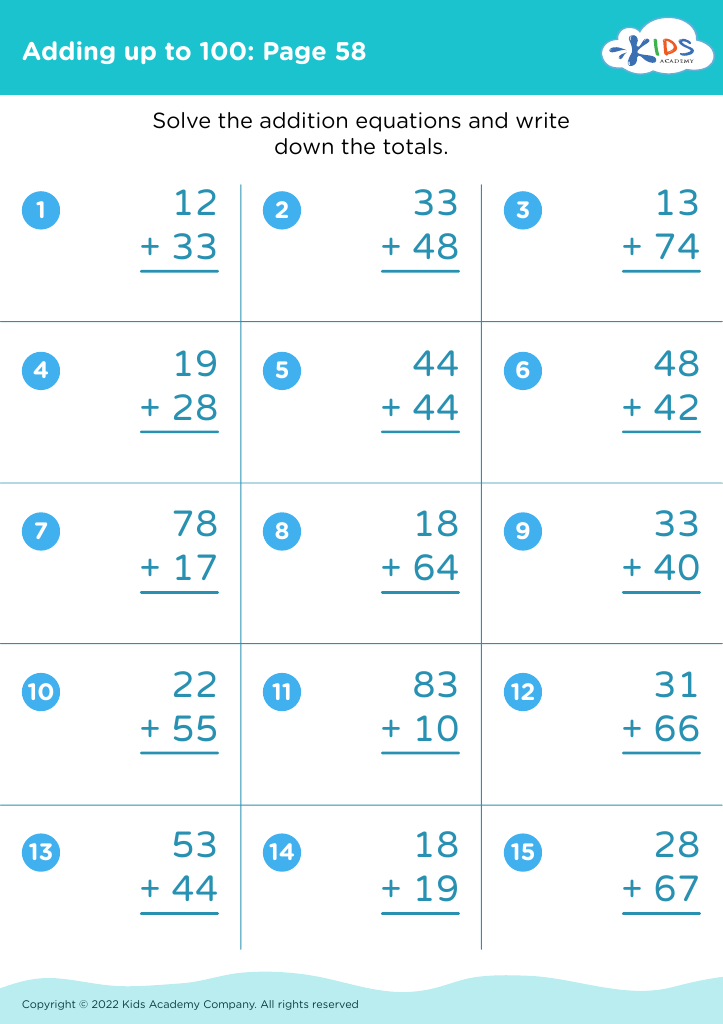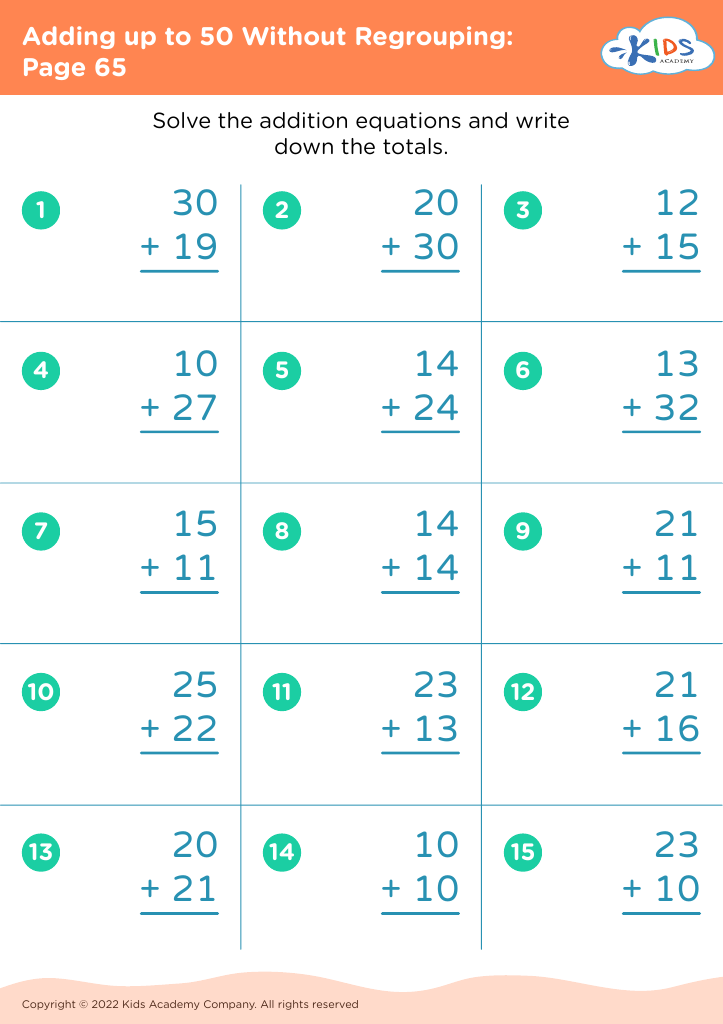Understand fractions Addition Worksheets for Ages 4-8
20 filtered results
-
From - To
Discover our engaging "Understand Fractions Addition Worksheets" designed specifically for children aged 4-8. These worksheets are perfect for introducing young learners to the concept of fractions through fun and interactive activities. Children will explore adding fractions with colorful visuals and relatable examples, nurturing both their math skills and confidence. Each worksheet provides clear explanations and structured exercises, making learning fractions enjoyable and accessible. Foster a positive foundation in mathematics as your child develops critical thinking and problem-solving abilities. Ideal for home or classroom use, these worksheets are a valuable resource for early education. Start exploring the world of fractions today!
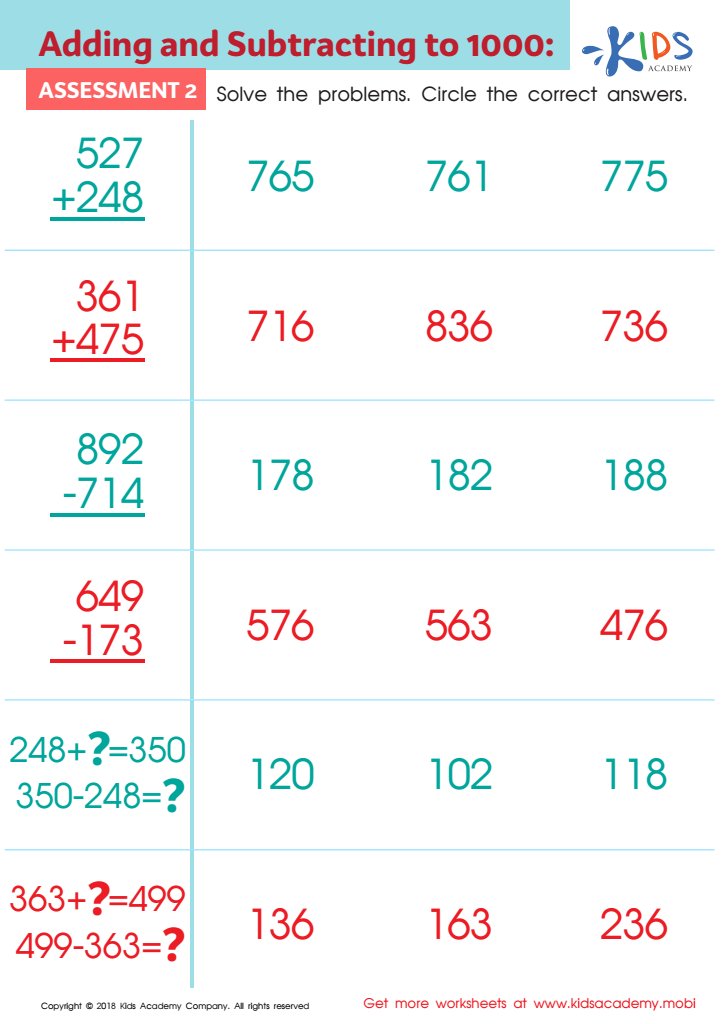

Adding and Subtracting to 1 Worksheet: Assessment 2
Understanding fractions and their addition is a crucial skill for children aged 4-8 that holds lasting benefits both academically and in everyday life. Early mastery of these concepts lays the foundation for more complex mathematical understanding, such as division and fractions related to ratios and proportions, which children will encounter in later school years.
From a practical perspective, fractions are part of daily experiences—whether baking, sharing snacks, or measuring lengths. Teaching young learners about fractions encourages them to recognize and be comfortable with parts of a whole, fostering critical thinking as they compare quantities and solve problems.
Moreover, grasping the concept of adding fractions builds number sense and enhances analytical skills. Teachers and parents who introduce these ideas early can also cultivate a positive attitude towards mathematics, countering the common fear of math in later years. Engaging children with interactive activities, such as using visual aids or real-world examples, can make learning fun and relatable.
Investing time in helping children understand fractions and addition not only supports their intellectual growth but also prepares them for a future filled with opportunities in math and science, empowering them in their academic journey and beyond.
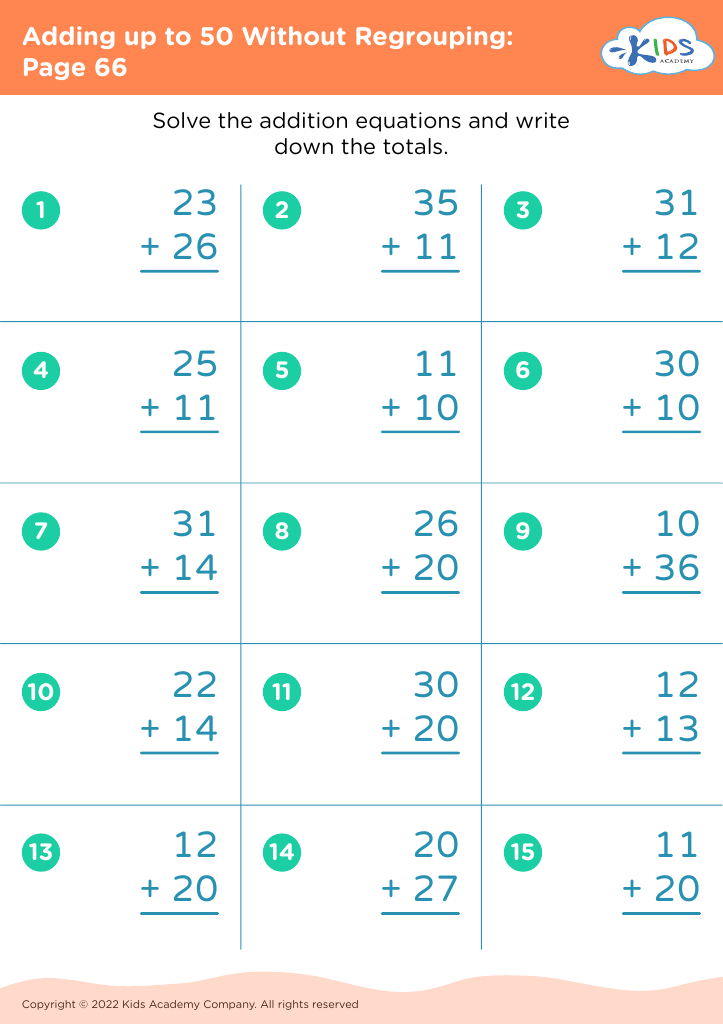


 Assign to My Students
Assign to My Students
